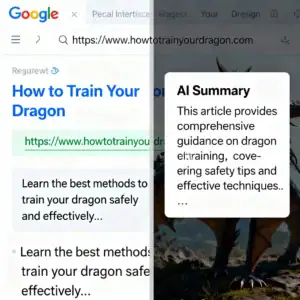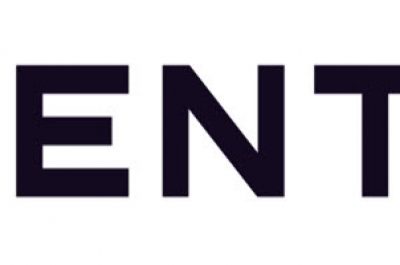How search behavior evolved in 2025, and the framework smart businesses use to stay ahead
By: Chris Sheehy
If you’ve noticed your website’s traffic patterns changing lately, you’re certainly not imagining it. Despite maintaining solid Google rankings, many businesses report that overall organic traffic is down, and qualified leads aren’t converting at the same rates they used to.
The shift started becoming obvious in late 2022 and accelerated through 2023, when potential customers began to increasingly use AI-powered tools like ChatGPT alongside traditional search engines when researching products and services. When someone searches for “remodeling companies near me” or “where can I buy Nike Kobe 8 Protro sneakers”, they’re just as likely to ask an AI chatbot as they are to use Google search.
This creates a significant opportunity – and a hidden risk. Businesses whose content works well in both traditional search and AI-powered discovery are capturing customers their competitors never even knew existed.
At Brave River Solutions, we’ve been tracking this evolution since Google first began integrating machine learning into search results. What we discovered led us to develop a content framework we call EQUATE, designed specifically for this dual-channel reality.

The New Search Landscape
Your content now operates in two distinct environments with different evaluation criteria.
Traditional search engines continue to emphasize authority signals, backlinks, site performance, user engagement metrics, and established ranking factors you’re likely familiar with.
AI-powered discovery evaluates content differently, prioritizing clarity, comprehensiveness, uniqueness, taking the path less traveled by the consensus, and the ability to provide definitive answers that can be confidently cited or recommended.
This divergence creates interesting challenges. We’ve worked with companies that dominate traditional search results but remain invisible when potential customers ask AI systems equivalent questions. Conversely, some businesses with modest traditional search presence gain significant visibility through AI recommendations because their content better aligns with how these systems process and evaluate information.
Rethinking Content Architecture
Most businesses still approach content creation (development) with a single-page mindset: one comprehensive page per major service or product category. While this approach provides adequate coverage in traditional SEO, it’s increasingly insufficient for the current landscape.
Consider a commercial roofing company. The conventional approach creates one “Commercial Roofing” page attempting to address all aspects: materials, installation, maintenance, pricing, and contractor selection criteria.
A more effective multi-platform approach develops interconnected content addressing how customers actually research these decisions:
- Core service overview linking to detailed supporting content
- “Commercial Roofing Materials Comparison: Making the Right Choice”
- “Budgeting for Commercial Roof Projects: Cost Factors to Consider”
- “Identifying When Your Commercial Roof Needs Professional Attention”
- “Maintenance Strategies That Extend a Commercial Roof Lifespan”
This architecture serves multiple purposes: traditional search engines recognize comprehensive topical coverage, AI systems find detailed information they can confidently cite, and customers receive thorough answers to their specific questions rather than feeling compelled to continue searching elsewhere.
The EQUATE Framework
We developed EQUATE as an evolution of Google’s E.E.A.T writing guidelines – but added two very important attributes – Quality and Uniqueness. This created a practical system for developing content that performs well across both traditional and AI-powered discovery channels:
Experience: Demonstrate first-hand, life experience with the topic at hand. Show that you’ve done the work, used the products, or lived through the situations you’re writing about—not just theoretical knowledge.
Quality: Provide complete answers that resolve customer questions without requiring additional research. Address not just what you do, but why it matters, how it works, and what results customers should expect.
Uniqueness: Contribute original insights, proprietary research, or exclusive case studies that AI systems cannot generate independently. This differentiation becomes increasingly valuable as AI-generated content proliferates.
Authoritativeness: Build recognition as a go-to source for information in your field. This comes from other reputable sites linking to you, mentions across the web, and being cited by other authorities in your industry.
Trustworthiness: Ensure your content and website are accurate, honest, safe, and reliable. This includes clear contact information, transparent business practices, secure site functionality, and factual accuracy in your content.
Expertise: Establish your knowledge, skill, and credentials in the subject matter. Display the qualifications, training, and professional background that make you qualified to provide information on this topic.
Implementation Strategy
- Phase One: Audit your current content against how customers actually research your services. Identify gaps where competitors provide more comprehensive information.
- Phase Two: Develop core pillar content supported by detailed pages addressing specific customer questions. Prioritize topics where you have genuine expertise and customers need guidance.
- Phase Three: Monitor performance across both traditional metrics (traffic, rankings, conversions) and newer indicators (AI platform mentions, content sharing, engagement depth).
- Phase Four: Iterate based on performance data, expanding successful content themes, and updating information to maintain relevance.
Most businesses see initial results within 3-4 months, with full impact typically achieved by 6-8 months.
Investment Considerations
This approach requires more substantial content development than traditional single-page strategies, typically 3-5x for the initial creation effort and 20-30% more ongoing maintenance.
However, businesses implementing comprehensive content strategies report:
- Enhanced lead quality from customers who’ve engaged with detailed information
- Improved competitive positioning as recognized subject matter experts
- Greater visibility across multiple discovery channels
- More sustainable long-term growth as content assets compound over time
When This Strategy Makes Sense
This framework works best for businesses where:
- Customers typically research before making decisions
- Your expertise provides genuine value in the decision-making process
- Your market has sufficient search volume to support multiple content pieces
It may not be optimal for businesses or markets requiring immediate results over long-term positioning. For that, pay-per-click advertising on Google and Microsoft/Bing Ads is a solid short-term solution. But immediately following up with on-page content for long-term results.
The Competitive Reality
The businesses that adapt their content strategies to work effectively in both traditional search and AI-powered discovery will capture market share from competitors who have yet to recognize this shift.
It’s critical to point out that this isn’t about replacing traditional SEO; it’s about evolving your approach to remain competitive as customer research behavior changes.
Companies that build comprehensive, authoritative content systems and employ a search everywhere optimization (SEvO) ideology now will be positioned to dominate their markets as these trends accelerate through 2026 and beyond.
#BeBrave #MadeInRI #BraveBytes #EEAT #EQUATE #contentdevelopment #contentcreation #digitalmarketing #web

